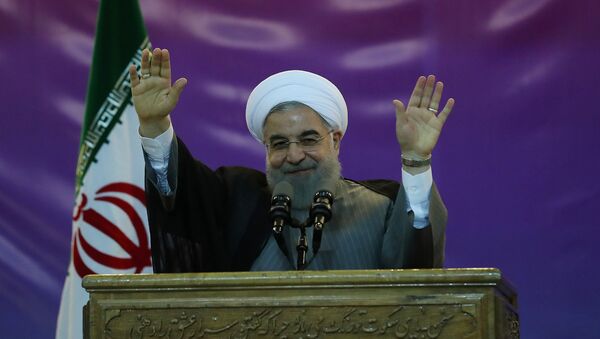Hassan Rouhani noted that Tehran had sent its military advisers to the Arab republic at the request request of its legitimate government in order to help Damascus fight terrorism. He expressed hope that no "foreign military presence" would be needed after the terrorist threat had been eradicated.
READ MORE: Damascus: Israeli Strikes Indicate 'New Phase of Aggression' Against Syria
Israel accuses Iran of sending the country's troops to Syria in order to attack it from Syrian territory. Tel Aviv has already conducted several airstrikes against Syrian bases under a pretext of Iranian Revolutionary Guards being stationed there. Tehran and Damascus deny these accusations.
State of Iran Nuclear Deal
The two presidents also discussed the current state of the JCPOA. Rouhani praised the stance to keep the deal alive that Europe took after the US withdrawal, but noted that so far statements had not "accompanied by practical and tangible measures and solutions."
"If Iran cannot benefit from the privileges of this agreement, remaining in it will not be possible," the Iranian president said.
READ MORE: Solving Financial Issues Main Challenge in Preserving Iran Deal — Mogherini
Emmanuel Macron confirmed commitment to the JCPOA and assured Rouhani that France is working on "a series of measures and practical solutions" to make the deal work.
The US withdrew from the Iran nuclear deal in May 2018, with President Donald Trump claiming the deal was "flawed" at its core. Other parties to the agreement have confirmed their readiness to stick with the deal and work out solutions against possible US sanctions.


